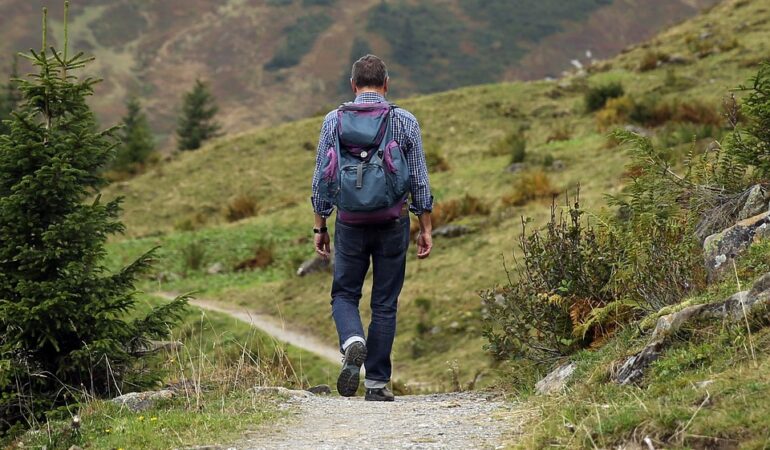Nature's Path: The Double-Edged Sword of Hiking on the Environment - Muirt-Rail John

Hiking is one of the most popular pastimes for nature enthusiasts worldwide. It’s a way to connect, refresh, and get up close with our natural world. But have we ever stopped to ponder: does our love of hiking leave an imprint on the environment? Dive into the double-edged world of hiking and its environmental implications.
The Bright Side of Hiking
First, let’s appreciate hiking’s undeniable benefits:
- Mental and Physical Health: Hiking reduces stress, anxiety, and depression. It also promotes cardiovascular health, muscle building, and flexibility.
- Eco-tourism: By supporting national parks and hiking destinations, we ensure their preservation and conservation.
- Nature Appreciation: Hiking fosters a deeper respect and understanding of nature, leading to a more environmentally conscious society.
The Flip Side: Impact on the Environment
However, where there’s light, there’s shadow. Let’s explore the potential negative effects of hiking:
1. Trail Erosion
- Heavy Traffic: Popular trails receive thousands of visitors a year, leading to pathway degradation.
- Shortcuts: Creating new paths by not sticking to the designated route can cause soil erosion and damage delicate ecosystems.
2. Waste Management
- Litter: Not all hikers follow the Leave No Trace principle. Plastics, wrappers, and even leftover food can harm the environment.
- Human Waste: Improper disposal of human waste can contaminate water sources and harm wildlife.
3. Disturbance to Wildlife
- Loud noises, close encounters, and feeding can disturb animals’ natural behaviors. This interference can lead to a range of problems, from stress in animals to dangerous confrontations.
4. Introduction of Non-native Species
- Seeds and small organisms can ride on our shoes or gear. When introduced to another environment, they can become invasive, outcompeting, and harming local species.
Walking the Middle Path: Sustainable Hiking
While hiking can be concerning, there’s hope. By adopting sustainable practices, we can minimize our footprint:
- Stick to Designated Paths: This simple act reduces erosion and protects native flora.
- Pack Out What You Bring In: Adopting a strict ‘Leave No Trace’ philosophy can help keep our trails pristine.
- Educate Yourself: Before heading out, familiarize yourself with the local flora and fauna. This knowledge will ensure you don’t harm the environment.
- Choose Less Popular Trails: By diversifying our hiking spots, we can reduce pressure on the most popular trails.
The Hiker’s Oath: Pledging for a Better Tomorrow
For many of us, hiking is not just a hobby; it’s a way of life. To ensure that the trails we cherish remain unspoiled for future generations, it might be time to take a personal oath. Here’s a proposed pledge for responsible hikers:
The Hiker’s Oath
- I will always hike prepared: This means researching the area, understanding its specific sensitivities, and preparing for minimal impact.
- I will respect wildlife: I pledge not to feed, harass, or approach wildlife. I’ll view them from a distance and leave them undisturbed.
- I will practice proper waste disposal: All my waste, whether biodegradable or not, will come back to me. I’ll also consider packing out any trash I find on the trail.
- I will camp responsibly: If I’m doing an extended hike and camping out, I’ll set up at least 200 feet away from lakes and streams to protect riparian areas.
- I will share knowledge: I pledge to educate fellow hikers about sustainable practices and the importance of preserving the natural world.
Beyond the Trail: Spreading the Word
Responsibility does not end when we leave the trail. In the digital age, sharing our experiences can influence others:
- Share your hikes on social media with environmental mindfulness. Your Instagram caption or Twitter thread can highlight nature’s beauty and the importance of preserving it.
- Join or support conservation groups that maintain and protect hiking trails. Many organizations, such as the Appalachian Trail Conservancy or the Pacific Crest Trail Association, work tirelessly to ensure these trails remain for future generations.
- Participate in trail clean-up days. This collective effort helps keep our trails clean and fosters community among hikers.
Final Thoughts
Hiking connects us with the planet’s pulse. Every step we take is a step towards a more sustainable and harmonious relationship with the natural world. As we embrace the joys of hiking, let’s also remember our duty to protect, preserve, and pass on this legacy to the generations that follow. Remember, every journey starts with a single step – let yours be one of responsibility and love for nature.